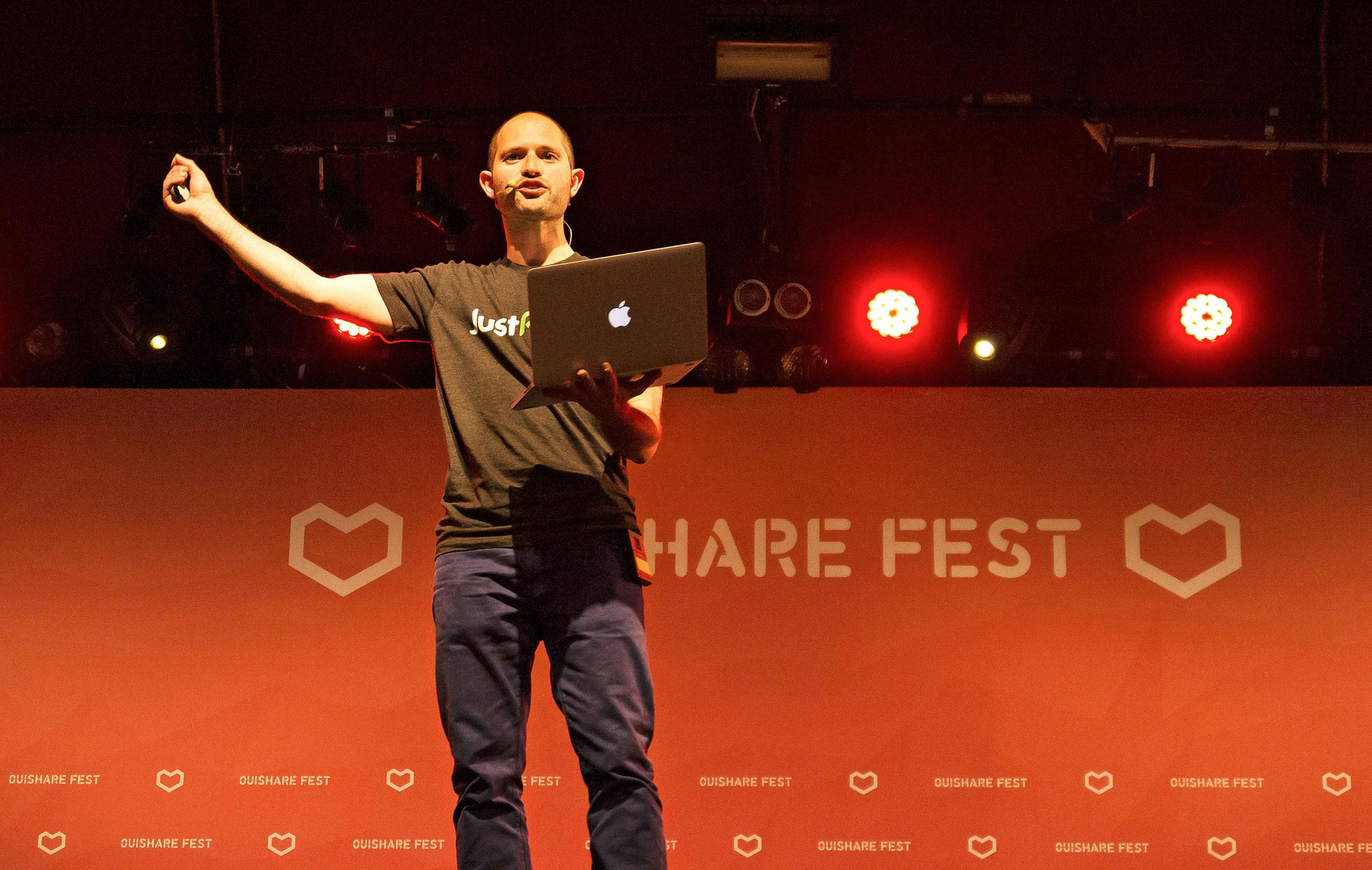Solve the supply – An interview with Alex Stephany
A clear and compelling value proposition is the simplest way of acquiring supply.
Published on
Last updated on

In this inspirational post series we interview global marketplace experts and thought leaders.
Cast your mind back to the last time you were driving around, looking for parking. While you were relying on the goodwill of the parking fairy, Alex Stephany, author of The Business of Sharing and former CEO of JustPark, was focused on providing a better solution.
– JustPark connects drivers in search of parking with anyone who has a spare space—whether it is a private driveway or a public school.
The idea is pretty simple.
– At JustPark, we promote the idea that if people use their car, they should always know where they will park before they arrive at their destination, Stephany continues.
– Driving around in circles is extremely polluting. Although we—along with our investors—see a massive business in parking, we believe it is a business that can have positive externalities for cities and communities. A sort of accidental environmentalism.
Solving an actual problem is just one of the lessons mentioned in The Business of Sharing. In his book, Stephany takes you through the whole chronology of building a marketplace—from getting an idea and building a brand to finding the right investors and strategic partners. He does so through interviews with the founders behind businesses like Airbnb and Zipcar. Having seen a myriad of businesses trying to be the next “Airbnb of x”, Stephany refers to the advice he got from Jeff Jordan, an investor serving on the board of Airbnb, on how to find the right niche.
– What he does is write down what he calls the "balance sheet of people’s lives". Looking at what has significant but untapped potential value, you will place your property at the top. The next item will probably be your car. Your parking space is perhaps between there—it is property worth a significant amount of money, but not as valuable as your home.
Looking down the list you will find designer clothes, jewellery, and watches. Now, keep going down, down, down.
– There is probably a demand for marketplaces that deal with items at the bottom of the balance sheet of life, but it might not be a big business. It does not mean it is not a great business, though—it can still provide a lot of social capital in a community or in a city. But you need to figure out your goal, whether it is becoming a trillionaire or putting value back into your community, reducing resource consumption, and doing something sustainable.
Understanding the demand side of a marketplace really means understanding what customers desire.
– Before investing in software or hiring people, I would always say to people: speak to both sides of the marketplace. Make sure there is actually a problem to be solved there. Make sure there is supply that wants the demand you are proposing and that demand actually wants that supply.
You want to target really specific supply and demand.
Stephany uses the example of a vintage clothing marketplace.
– Consumers do not just want second-hand clothes. You need to figure out which specific type of clothes, whether the demand comes from men or women, and what kind of age groups you are talking about. Generally, you want to target really specific supply and demand. Once you start having conversations with people, you will begin to refine your business idea. But whenever possible, make decisions off data and how people act rather than how they say they will act.
In the end, you need to have an understanding of the numbers behind the marketplace. This means finding the right revenue stream for your platform and tracking your success through key marketplace metrics.
– You need to understand what it actually costs to bring in an additional unit of supply or demand. Successful marketplaces like BlaBlaCar do two things: the soft stuff—a nice brand, good communication, building trust into the community—and the hard stuff, which is the math. When a business gets to that scale, to some extent it is always going to be a numbers game.
Since the birth of the company in 2006, JustPark has grown from a purely peer-to-peer marketplace—in which only families and individuals were renting out their driveways—to also becoming a business-to-consumer (B2C) business.
Usually, it is better to get supply first.
– At some point, we had grown to a very large community of drivers that did not just want to park in driveways but were equally happy to park in car parks, hotels, and schools. So we expanded the business to include professional providers.
Matching supply with demand seems to be a basic economic problem for peer-to-peer marketplaces. Although marketplaces are two-sided, Stephany argues that building one is normally not a chicken-and-egg problem.
– Usually, it is better to get supply first. Fundamentally, you need to know that there are no major blockers for supply and no major blockers for demand. You do not need to solve all of the economic problems early on, but you need to have a good enough understanding of how to build supply and demand, and that both parts can be brought together. You need to know that you have a decent enough chance to build liquidity.
Stephany brings up Hotel Tonight, a platform for booking last-minute hotels that used a fake-it-until-you-make-it methodology in order to build supply.
– They wanted people to book nice hotels but did not actually have deals with Hilton, Marriott, and Four Seasons. When someone booked The Ritz, they had to actually go to the hotel and book a room themselves. So you can kind of fake liquidity.
A hotel room is one thing. But can you fake the supply of a power drill?
– You might not fake it, but you can artificially fill the marketplace with inventory. If you are looking to get power drills, you can go to a hardware shop or rental company and borrow power drills in order for people to get a great first experience on your platform. Over time, peer-to-peer supply will replace the 50 drills you borrowed, gradually moving from a B2C marketplace to a peer-to-peer marketplace.
Stephany believes that simplicity is always an advantage in business. The same applies to supply acquisition. Having a compelling and clear value proposition for suppliers is therefore important. For JustPark, the value proposition differs depending on whether the supply is a family or a church, a school, or a car park.
– How you pitch the business is quite different for different stakeholders. Although the primary thing is about turning empty space into money, the way you communicate that message differs. Certain auxiliary benefits would also differ. In the case of a hotel, it might mean that someone who is parking there would also have lunch at or recommend the hotel for a business meeting. In the case of a home, an auxiliary benefit might be extra security for your property due to a parked car in the driveway deterring burglars.
Sometimes property owners also enjoy the additional interaction with drivers. If that is the case, Stephany tells that the owners will make the degree of interaction clear to the driver.
– The owners will meet them, invite them in for a cup of tea, or let them use their toilet. Sometimes they arrange transfers to the airport or even wash their cars while they are gone. But for most people, cars just come and go. For them, it is very easy money. Money appears in their bank account and that is it.
In order to facilitate contact between customers, JustPark organizes community meet-ups where families who rent out their driveways meet and connect.
Many of our users are now our shareholders as well.
Earlier this year, JustPark raised the largest equity crowdfunding round in history for a tech startup. The offer generated a significant investor community, consisting of almost 3,000 investors.
– Many of our users are now our shareholders as well. We expect them to be a small engine of growth within the business by telling their friends about us, recommending us, and using us. To build a community, we will also have an annual event with our investors.
According to Stephany, much of JustPark’s success can also be attributed to the convincing value proposition for drivers.
– For drivers, JustPark adds value by taking the hassle out of parking and making it cheaper. The price of parking is dramatically lower than what you would pay on the street.
Instead of ending up in a far-off parking space, you can pull up near your destination knowing that there is a parking space waiting for you.
– It is very convenient, Stephany concludes.
– And with your reserved space waiting for you, JustPark makes everyone feel like the chief executive of a business.
You might also like...

The marketplace business model – how to monetize your marketplace
Learn how the marketplace model works and how you can choose the right revenue strategy for your business.

How to onboard & grow your initial marketplace supply
Mike Williams shares five tactical tips for growing and onboarding marketplace supply. All battle-tested with his global music studios marketplace Studiotime.

Make the right trade-offs for your marketplace
It is better to grow slow in order to preserve the unique aspects of your marketplace.
Start your 14-day free trial
Create a marketplace today!
- Launch quickly, without coding
- Extend infinitely
- Scale to any size
No credit card required
